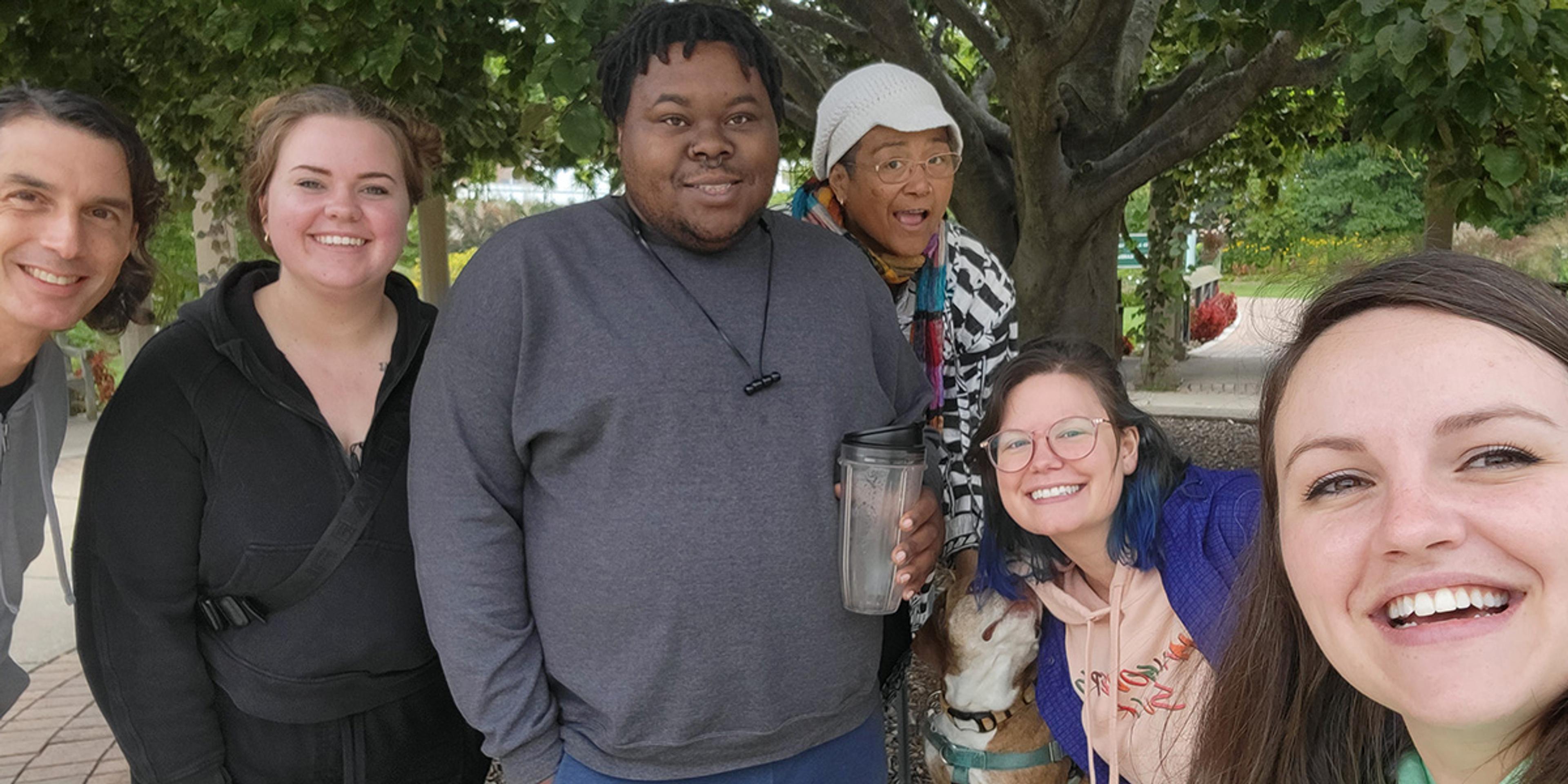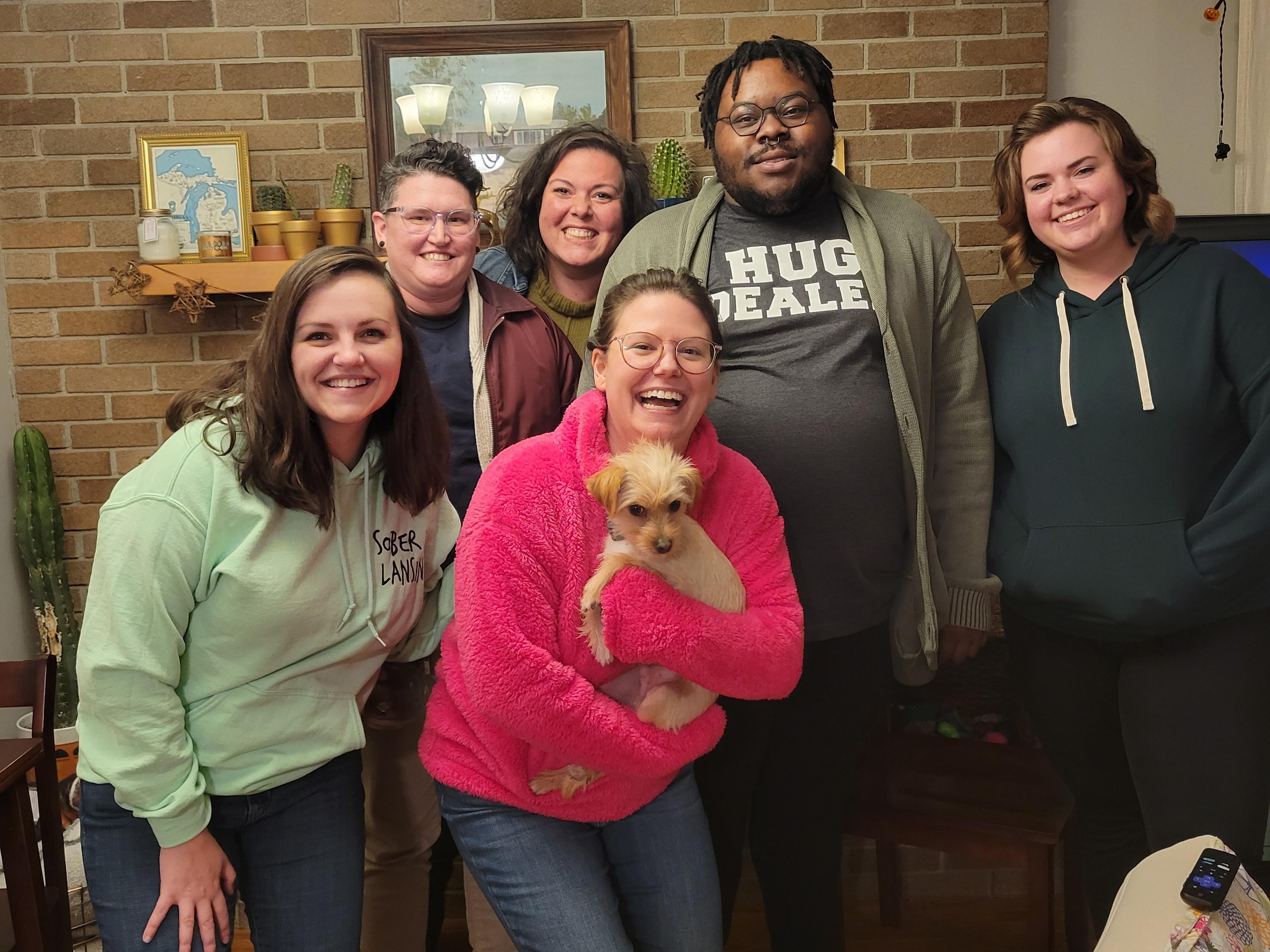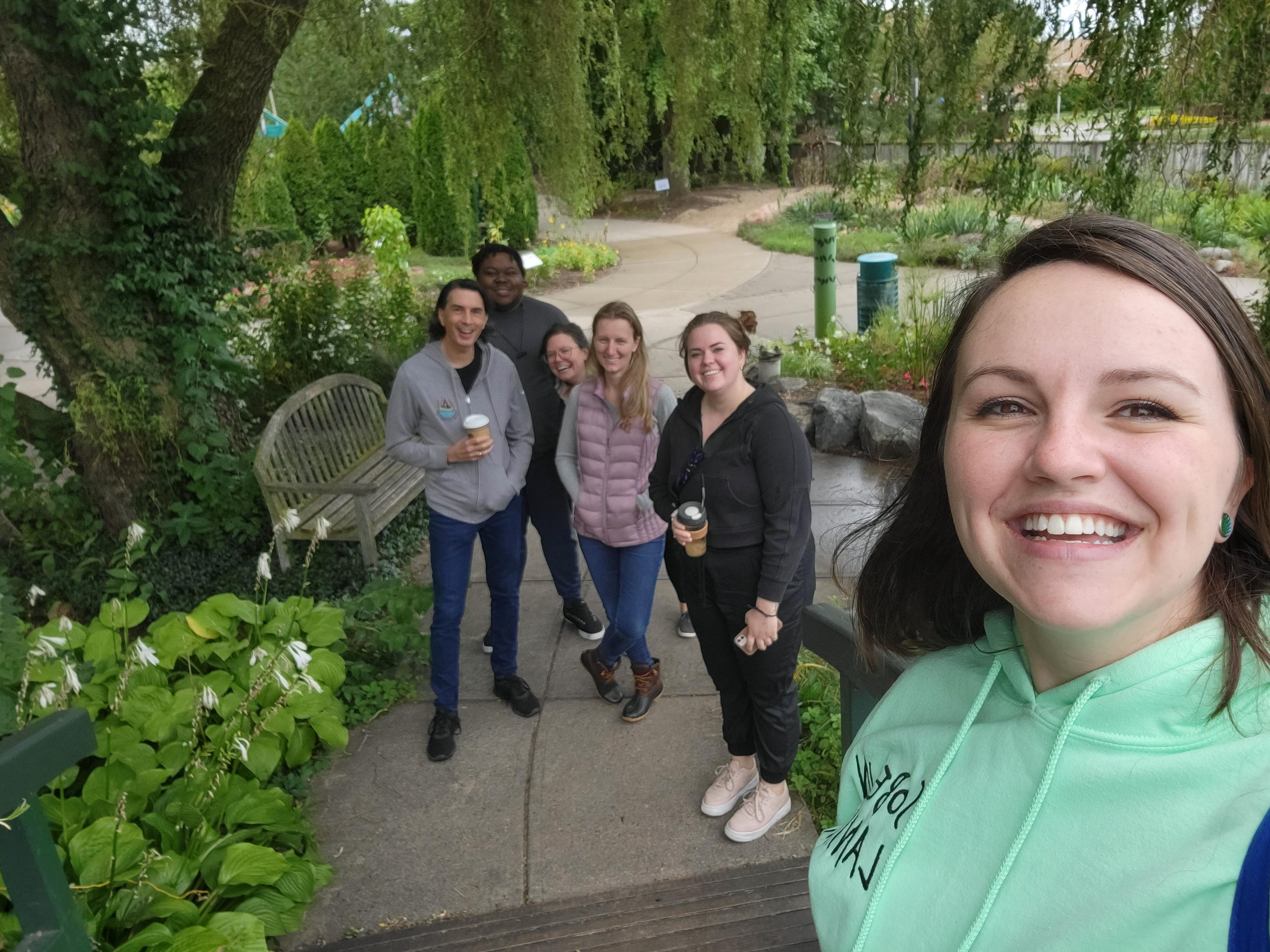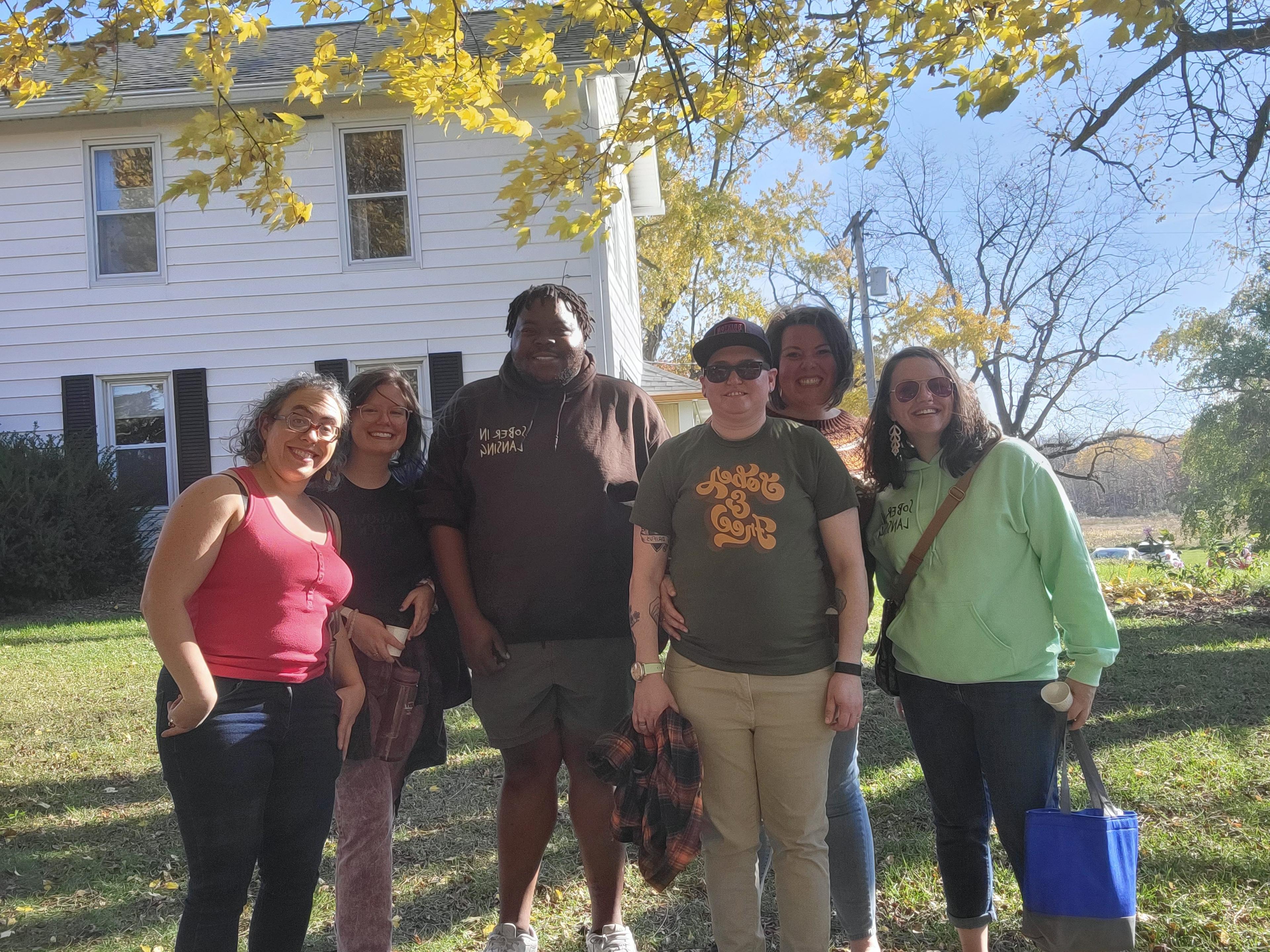‘You Can Have Fun Without Alcohol:’ Lansing Woman in Recovery Helps Others Live a Sober Lifestyle

Jake Newby
| 6 min read
Jake Newby is a brand journalist for Blue Cross Blue Shield of Michigan.

When Alyssa Turcsak’s doctor told her she had an alcohol-induced fatty liver, she remembers raising an eyebrow at it, but she wasn’t concerned enough to stop drinking. The 30-year-oldLansing resident – who would binge drink until she blacked out nightly when she was at her lowest – didn’t commit to sobriety until she lost her job. That was her wakeup call.
“At 25, 26 I started having signs of a fatty liver and my doctor was like, ‘Hey, this is bad. It can turn into cirrhosis,’” recalled Turcsak, a Blue Cross Blue Shield of Michigan (BCBSM) member. “But that wasn’t even the thing that scared me into getting sober, as bad as that sounds, because I think when you’re in that state, my mental health was horrible. I was not concerned about that. The thing that really scared me was when I lost my job.”
A gutting moment at the time, Turcsak views it as one of the best things that ever happened to her. Turcsak’s employer at the time let her go for calling off work consistently, which she said was a result of her hangovers. Turcsak suffered from alcohol use disorder (AUD) for more than five years.
“I thought, ‘If I don’t have money, I’m going to end up homeless, I’m going to end up without the ability to buy alcohol,’” Turcsak said.
As is statistically the case with most people who initially attempt recovery, Turcsak relapsed after her first inpatient rehabilitation stint. She then relapsed once more after another attempt to get clean. But her third try stuck. Turcsak has now been alcohol-free since January 2020.
“The very time I went to Brighton Center for Recovery, Blue Cross Blue Shield helped me get there,” she said. “I’m on Blue Cross Blue Shield now, and I take part in the health coaching and I have regular doctor’s appointments and I have a therapist, and all of these things are possible because of my insurance.”
Living a sober lifestyle and benefitting from the power of socializing
Turcsak considers herself an “open book” when discussing her road to recovery. She shares the lowest moments of her battle with AUD in hopes of uplifting others who traveled the same dark roads. And those hopes have manifested into real differences for real people. Whether she wants to say it or not, Turcsak has become a community leader in Lansing, organizing events under the “Sober in Lansing” banner. Sober in Lansing is a local chapter of the national “Sober City Movement.”
“Definitely the most important thing you can do is meet other people who are looking at their relationship with alcohol differently,” she said. “Because that is the part that continues to save my life. To connect with people who get it.”
Sober City chapters are not recovery programs or peer support groups. They’re volunteer-led social networks designed to unite people in recovery and people trying to cut back on drinking in alcohol-free settings free from the pressure and triggers many social situations present.

“We have people who still drink and who are trying to change their relationship with alcohol,” she said. “I know for me, that was really big in my early recovery. As it continued before it really stuck, I tried many, many times. But there were times when I saw other people living their life without alcohol and I thought, ‘How do they do that?’ But you can party without alcohol and have fun. It is possible, you can get there.”
Anywhere from five to 15 people will show up at a Turcsak-thrown Sober in Lansing event. Activities have ranged from strolls through the 4-H Children’s Gardens on the Michigan State University campus to lunches and coffee meetups. From partner Tai Chi classes to sober socials featuring zero-proof cocktails whipped up by the Zero Bar & Lounge mobile “bar.”
“What I’ve found that’s happened, and I think it’s really beautiful, is that people meet in the group and then they hang out outside of the social,” said Turcsak, who in addition to her volunteering works full-time as a nonprofit outreach coordinator. “There was a couple last time that said, ‘Hey, we’re going to have a game night tonight does anyone want to come?’ And others will go. Those things can happen organically and that’s kind of the intention of the whole thing, is to let those relationships blossom.”

What is “sober curious?”
Regular drinkers who don’t want to give up alcohol altogether can benefit from adopting a less alcohol-centric lifestyle. Cutting back can lead to better sleep, more mental clarity, a healthier weight, and lower risk for long-term health conditions like high blood pressure, stroke, cancer and liver disease.
As Turcsak mentioned, the social meetups she organizes are not exclusive to those in recovery –her meetups welcome anyone who just wants to cut back. By Turcsak’s definition, anyone who has had thought about cutting back on alcohol – whether it be for the sake of their health, their social interactions or their relationship – is sober curious. Even regular drinkers who decide to swap out beer for soda while watching a sporting event one night are “sober curious,” a term that has gained steam in recent years.

“I heard a speaker one time talk about how if you think about your experience with a substance, whether it’s alcohol or a different drug, sober curious is you are thinking about a change process. So, you are looking at a relationship with a drug and thinking about how it’s affecting you. The simple act of observing your behavior with a substance can be an act of sober curiosity.
“Then there are different initiatives we’re seeing,” she continued. There’s dry January. There’s1,000 hours dry, which is a social media thing. There are different ways you can kind of experiment to see how it feels to go without your substance. In this case, without alcohol. I think that is what sober curiosity is about, the exploration of how your life looks and feels without it.”
Turcsak encourages regular drinkers to try and abstain from alcohol for an upcoming weekend in April – which is Alcohol Awareness month – to see how they feel. It could lead to better habits, better health and a better understanding of others.
“Maybe that won’t be hard for you, but try and do it, try and go a weekend without alcohol” she said. “That is sober curiosity. If you can go through that experience of consciously choosing not drink alcohol this weekend, if you’re making that decision, it might help you build empathy toward people who have an AUD, and may not be able to make that decision. So, there’s also a connection between sober curiosity and people who struggle with addiction.”
Photo credit: Alyssa Turcsak
More from MIBlues:





